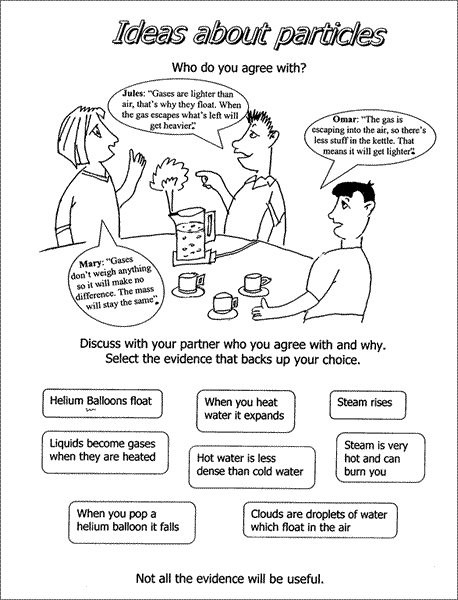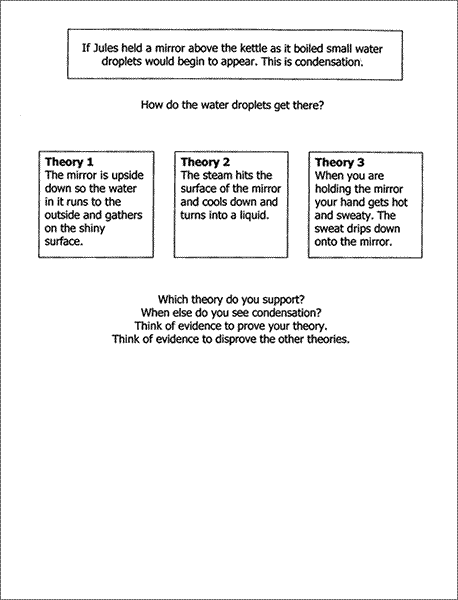SCIENCE
ENHANCEMENT PROGRAMME |
||||||||
 |
||||||||
| quick link: Menu | Intro | A | B | C | ||
|
||
|
Developed
by Sam Peyton. Sc3, Solids, Liquids and Gases. Twyford Church of England School Introduction This lesson is based on a concept cartoon activity, in which students are presented with three theories and some evidence. Through discussion they have to select the theory that they believe and justify their decision by referring to the evidence. This lesson gives teachers the opportunity to elicit the students’ ideas about particles, a concept that many find difficult and about which many hold misconceptions.
• choose relevant evidence to support a statement;
• A starter activity is used to encourage and assess pupils’ involvement. The pupils are presented with the statement; ‘I am in a laboratory’. They are then asked, ‘What evidence backs this up?’ The teacher collates a list of evidence statements on the board, and asks the students which of the statements are relevant and which are not. The activity serves to model the idea of evaluating relevant evidence. • The teacher presents a concept cartoon with evidence statements and asks the pupils to decide which character they agree with. They are then asked to select the evidence that backs up their choice. They can use the evidence statements provided or their own evidence. • The teacher presents a scenario about condensation and gives the pupils three theories that can serve to explain the scenario. The correct theory is fairly obvious, but the task is for pupils to provide evidence why this theory is correct and the other theories are incorrect. • In the plenary, the teacher provides a writing frame
to help the pupils to document their choices and evidence. Writing Frame: Theories and evidence ________________________________________________________________________________________________________________________ I don’t believe ___________’s theory. I don’t believe this theory because____________________________________________________________________________________________
I don’t believe this theory because____________________________________________________________________________________________
|
|

